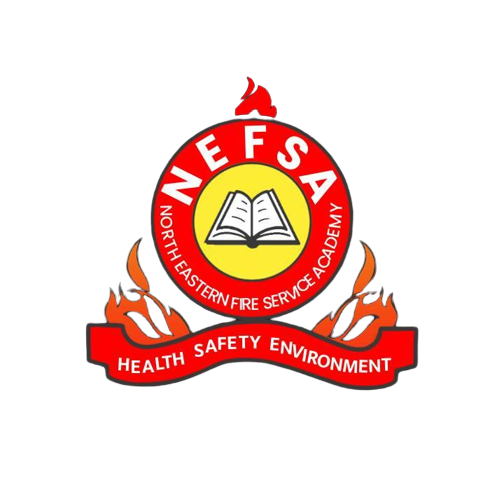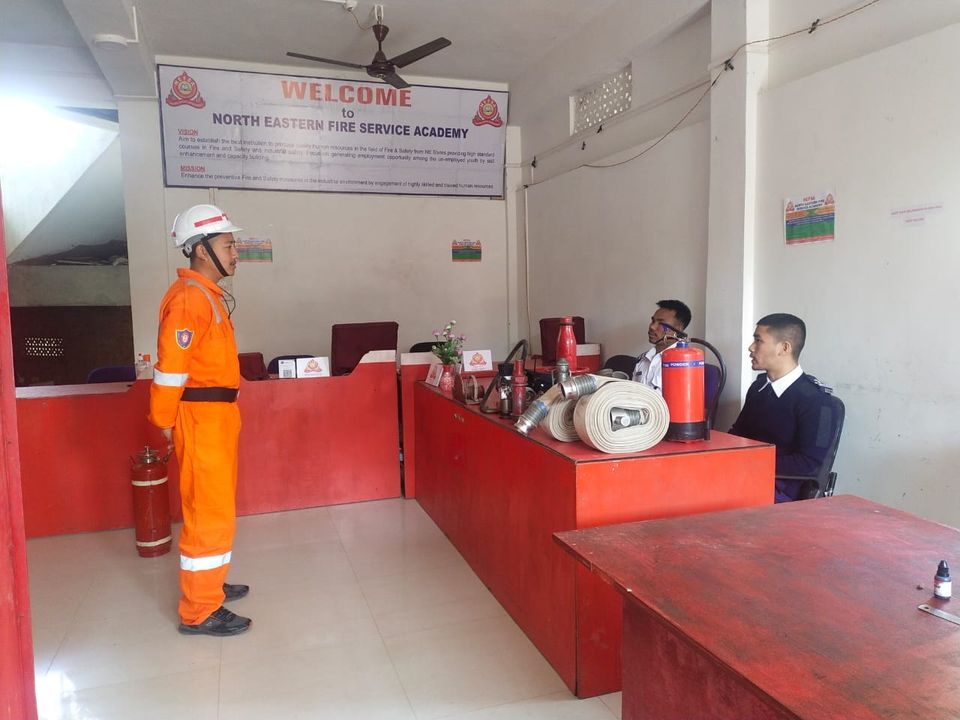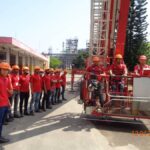Every day, firefighters and safety professionals choose action over comfort. If you’ve ever felt the pull to protect people and property, NEFSA (North Eastern Fire Service Academy) in Dibrugarh turns that impulse into a structured, employable career. NEFSA combines classroom learning, live-fire drills, rescue simulations, and placement support so students graduate ready for real-world roles.
Why choose a career in fire & safety?
A job in fire and safety is more than a paycheck it’s community service, leadership, and technical skill rolled into one. Career paths include frontline firefighting, fire sub-officer roles, industrial safety officer positions, disaster-management specialist jobs, and consultancy in EHS (environment, health & safety). Many sectors oil & gas, manufacturing, large commercial buildings, government services and event management recruit trained fire professionals. These roles commonly offer steady demand and upward mobility for trained candidates.
What NEFSA offers practical, career-focused training?
NEFSA’s curriculum covers core topics that employers want:
-
Live-fire training, ladder and rescue operations, and smoke-chamber exercises.
-
Diploma and certificate courses in Fire & Safety, Disaster Management, and specialized sub-officer programs.
-
Emphasis on physical fitness, teamwork, and leadership under pressure.
NEFSA also reports dedicated placement activities and industry ties that help students move into jobs after course completion. These industry links are a major advantage for learners who want direct entry into the workforce.
Certifications that matter (and why they help)
Globally recognized certifications and nationally accepted training improve employability. Credentials from acknowledged bodies (and alignment with international standards such as NFPA) boost your resume and open doors to higher-paying roles and supervisory posts. Pursuing recognized certificates alongside NEFSA training strengthens credibility with employers in public and private sectors.
Job prospects & earning potential
Entry-level roles may start at modest salaries, but there’s room to grow. With experience and higher certifications, fire safety officers and industrial safety managers can command significantly higher pay and supervisory responsibility. Many institutes and placement partners report good hiring across oil & gas, refineries, large construction and infrastructure projects – sectors that particularly value trained fire professionals. (Salaries vary by role, location, and employer; specialised roles and supervisory positions typically pay more.)
A day in the life – what you’ll train for
During training you’ll practice:
-
Fire suppression tactics, pump operations and hose handling.
-
Rescue and evacuation drills, handling hazardous materials and first-aid/CPR.
-
Risk assessment, safety audits, and emergency response planning.
This practical, repeated exposure builds confidence to respond calmly and competently when lives are at stake. NEFSA’s training design focuses on replicating field stressors so graduates can perform under pressure.
Who should apply?
-
Young people finishing 10th/12th who want a vocational career with fieldwork.
-
Aspirants seeking government or private sector firefighting and safety roles.
-
Workers in industry seeking upskilling (safety officer, EHS roles).
If you’re physically fit, disciplined, and motivated to serve others, fire & safety training will channel those qualities into a respected profession.
How to pick the right course at NEFSA
-
Define your goal: frontline firefighter vs. safety manager vs. disaster response specialist.
-
Check course duration and credentials (diploma, certificate, recognition).
-
Look for hands-on components – live drills, simulators and rescue labs.
-
Ask about placement support and industry partnerships. NEFSA publishes course lists and placement details for prospective students.
Real ROI – skills, service, and stability
Training at a focused academy converts courage into transferable, in-demand skills. Beyond immediate employment, qualified fire and safety professionals can progress into supervisory roles, corporate EHS management, or specialist consulting careers that offer responsibility, stability, and the chance to save lives daily. Educational routes (diplomas to advanced degrees and certifications) also give a clear ladder for long-term growth.
Quick FAQ
Q: Does NEFSA provide placement help?
A: Yes , NEFSA highlights active placement support and partnerships with industry players.
Q: How long are typical courses?
A: Options range from short certificates (months) to one-year diplomas and multi-year degree programs depending on the qualification you choose.
Q: Are there physical requirements?
A: Yes , fitness, endurance and the ability to work under stress are essential. Training includes physical conditioning and drills.
Call to action
If protecting people excites you more than a desk job, NEFSA Dibrugarh offers a practical, career-first route into firefighting and safety professions. Visit NEFSA’s official site or contact their admissions to learn about courses, schedules, and seats. Your courage can become a respected career that actually saves lives.
Sources:-
-
North Eastern Fire Service Academy (NEFSA) “About Us” page — establishment in Dibrugarh, training aims and vision. nefsaindia.com+2nefsaindia.com+2
-
NEFSA official homepage — training focus, “Where Courage Meets Training”. nefsaindia.com+1
-
NEFSA blog / article “Why NEFSA Dibrugarh is the Best Fire Academy in Assam” — details on courses, infrastructure and placements. nefsaindiablog.com
-
National Fire Protection Association (NFPA) Certifications page — importance of recognized certifications in fire & life safety. NFPA







